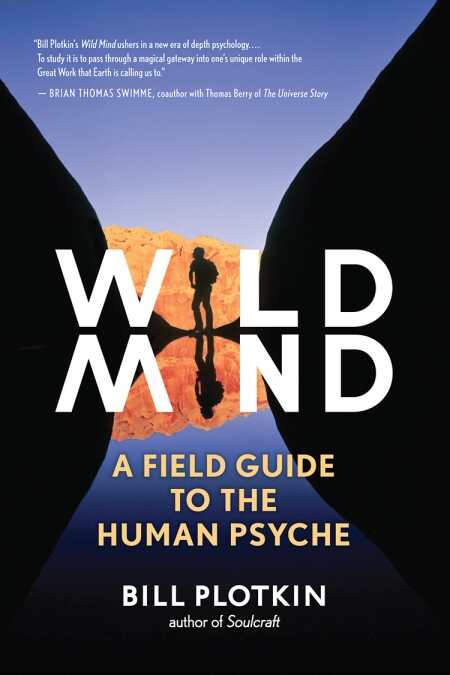Wild Mind
A Field Guide to the Human Psyche
Psychologist argues that Western philosophy has quashed humanity’s potential and suggests a nature-based exploration of the ephemeral psyche.
Bill Plotkin’s Wild Mind calls for nothing less than a radical and total commitment to being fully human—to embodying one’s original wholeness. The author, a depth psychologist and wilderness guide, asks readers to consider what might be discovered about the human psyche if one were to take into account the fact that humans are expressions of nature, as are all inhabitants of the planet.
He writes: “We must dare again to dream the impossible and to romance the world, to feel and honor our kinship with all species and habitats, to embrace the troubling wisdom of paradox, and to shape ourselves into visionaries with the artistry to revitalize our enchanted and endangered world.”
Plotkin, who holds a PhD in psychology from the University of Colorado at Boulder and is the founder of the Animas Valley Institute, takes a look at what lies beyond Western psychology to give readers his vision of what full humanity means. In fact, he declares that Western psychology, with its focus on pathology, is obsolete; he believes that it—together with Western educational systems and religions—has suppressed humanity’s magnificence and potential. Humans’ unique genius, once embodied, becomes a powerful agent of change in the world.
Plotkin’s nature-based map of the human psyche is rooted in wisdom teachings from around the world; using the seven directions—north, south, east, west, up, down, and center—the author describes the facets of innate human potential, illustrates the “Self,” and identifies the qualities of nature that can be found in each direction. The immature forms of these he calls “Subpersonalities,” and he does a thorough job of showing how they can hijack and distort the psyche.
The author offers three core messages. His first message is that “the key to healing and to growing whole is not suppressing symptoms, eliminating wounds, or eradicating Subpersonalities, but, rather, cultivating our wholeness—the horizontal wholeness of the Self as well as the vertical wholeness offered by our relationship with Soul and Spirit.” His second core message is an affirmation that “there’s a vital and synergistic relationship between cultivating personal wholeness and building life-enhancing cultures.” And his third message clarifies the imperatives of a healthy, mature culture: protecting the environment; developing adequate numbers of true adults and elders to nurture, educate, and initiate the next generations; creating or revitalizing cultural practices; and protecting “the wholeness of the culture’s individual members.”
Plotkin deftly weaves the threads of his multifaceted philosophy to create a vivid picture of what it means to be a mature, fully developed human being, and he does so while taking into account the ephemeral nature of all that lives.
Reviewed by
Kristine Morris
Disclosure: This article is not an endorsement, but a review. The publisher of this book provided free copies of the book to have their book reviewed by a professional reviewer. No fee was paid by the publisher for this review. Foreword Reviews only recommends books that we love. Foreword Magazine, Inc. is disclosing this in accordance with the Federal Trade Commission’s 16 CFR, Part 255.

